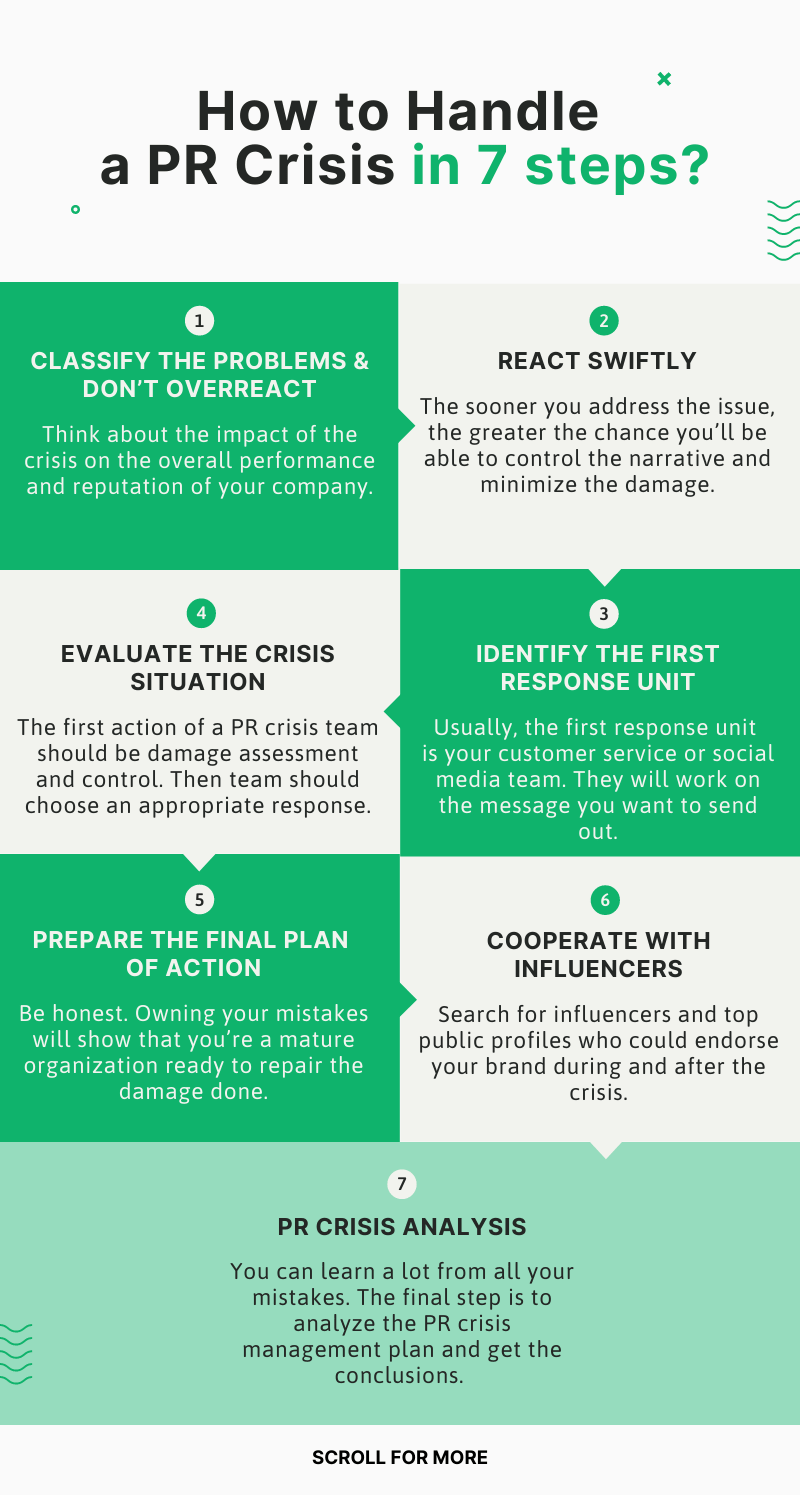Bouncing Back: 5 Tips for Crisis Management!
In the fast-paced world of marketing, it’s not uncommon to encounter a crisis every now and then. Whether it’s a social media blunder, a product recall, or a PR nightmare, how you handle these situations can make or break your brand. But fear not, with the right strategies in place, you can bounce back from any crisis with grace and finesse. Here are 5 tips for crisis management in your marketing strategy:
1. Be Transparent and Honest
When a crisis hits, the worst thing you can do is try to sweep it under the rug or cover it up. In today’s age of social media and instant information, transparency is key. Be honest with your customers about what went wrong, why it happened, and what you’re doing to fix it. By being open and transparent, you can build trust with your audience and show that you take responsibility for your mistakes.
2. Act Quickly and Decisively
In a crisis situation, time is of the essence. The longer you wait to address the issue, the more damage it can do to your brand. It’s important to act quickly and decisively to contain the situation and prevent it from escalating further. Whether it’s issuing a public statement, recalling a product, or apologizing to affected customers, taking swift action can help minimize the impact of the crisis.
3. Stay Calm and Professional
When faced with a crisis, it’s easy to panic and let emotions take over. However, it’s important to stay calm and level-headed in order to make rational decisions. Avoid lashing out or getting defensive, as this can only make the situation worse. Instead, approach the crisis with a professional demeanor and focus on finding solutions to resolve the issue.

Image Source: brand24.com
4. Communicate Effectively
Effective communication is key in crisis management. Keep your customers, employees, and stakeholders informed about the situation and the steps you’re taking to address it. Utilize all available channels, such as social media, press releases, and email updates, to keep everyone in the loop. Be sure to provide regular updates and respond to any questions or concerns promptly.
5. Learn and Grow from the Experience
While a crisis can be a challenging and stressful experience, it also presents an opportunity for growth and learning. Take the time to reflect on what went wrong, why it happened, and what you can do to prevent similar crises in the future. Use the experience as a valuable lesson to improve your processes, communication strategies, and overall crisis management plan.
In conclusion, crisis management is an essential aspect of any marketing strategy. By following these 5 tips, you can effectively navigate through any crisis that comes your way and emerge stronger on the other side. Remember to be transparent, act quickly, stay calm, communicate effectively, and learn from the experience. With the right mindset and strategies in place, you can bounce back from any crisis with confidence and resilience.
Keep Calm and Market On: How to Handle Crisis Like a Pro!
In the fast-paced world of marketing, crisis management is a skill that every marketer should have in their toolkit. Whether it’s a social media backlash, a product recall, or a PR disaster, knowing how to handle a crisis can make all the difference in maintaining your brand’s reputation and customer trust. Here are five tips to help you navigate through a crisis like a pro:
1. Stay Calm and Collected
The first rule of crisis management is to stay calm and collected. It’s easy to panic when things go wrong, but panicking will only make the situation worse. Take a deep breath, assess the situation, and come up with a plan of action. Remember, your customers are looking to you for guidance, so it’s important to project a sense of calm and confidence.
2. Communicate Transparently
In times of crisis, communication is key. Be transparent with your customers about what happened, why it happened, and what you’re doing to fix it. This will help build trust and show that you’re taking the situation seriously. Use all available channels to communicate with your audience, whether it’s social media, email, or press releases. And don’t forget to monitor the conversation and respond to any questions or concerns promptly.
3. Take Responsibility
When something goes wrong, it’s important to take responsibility. Whether it was a mistake on your part or an unforeseen external factor, owning up to the issue shows that you’re accountable and committed to making things right. Avoid making excuses or shifting the blame onto others. Instead, focus on what you can do to rectify the situation and prevent similar incidents in the future.
4. Offer Solutions
In addition to taking responsibility, it’s important to offer solutions to the problem at hand. This could mean issuing refunds, replacing products, or providing compensation to affected customers. Be proactive in addressing the issue and show that you’re willing to go the extra mile to make things right. Your customers will appreciate your efforts and it will help rebuild their trust in your brand.
5. Learn and Improve
Once the crisis has passed, take the time to reflect on what happened and how you handled it. What went well? What could have been done better? Use the experience as a learning opportunity to improve your crisis management strategy for the future. Develop a crisis management plan that outlines roles, responsibilities, and protocols for handling different types of crises. By being prepared and proactive, you’ll be better equipped to handle whatever challenges come your way.
In conclusion, crisis management is an essential skill for marketers to master. By staying calm, communicating transparently, taking responsibility, offering solutions, and learning from your experiences, you can navigate through any crisis with confidence and professionalism. Remember, a crisis doesn’t have to define your brand – it’s how you handle it that matters. So keep calm and market on!
Tips for Effective Crisis Management in Your Marketing Strategy